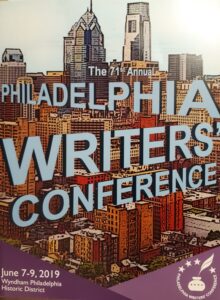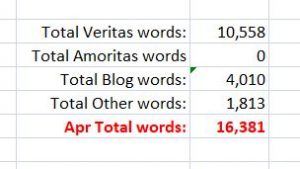This week has been slow for me, although productive. My Board of Education duties took up a great deal of time this week, with policies to review (they are good for curing insomnia).
I am also beta-reading a manuscript with my daughter. My friend Keith Strunk wrote a middle grade book and asked my 10-year-old daughter to give him her thoughts. I am reading it with her because she is always scared to read a new author alone, and it is a fun thing we can share. I was also glad to do it because I have been hearing about this book for a long time and couldn’t wait to finally see the finished story!
In my own work, I had gotten hung up with revisiting my story Vertias. Lisa Cron’s Story Genius was guiding me well, but then I ran aground on a concept I could not quite wrap my head around. I felt I was very close to crafting a compelling “third rail,” but I knew I didn’t quite have it. So I turned to my friend, author and editor Kathryn Craft, who simplified the concept and came at it from another angle so my pandemic brain could comprehend it properly. I need to re-read all that she put in her insightful and detailed email to me, but once I do I think I will be able to move forward with more confidence. I feel that if I can get this right, get the beginning right, the rest will follow more easily.
As summer comes to a close, we are preparing for a new school year. It will be unlike the beginning of any other school year ever, but we are up for the adventure and we know we will all get through it together.
How are you spending these last weeks of summer?


Family & Frustration – CoronaLife Day 159
We got tested for coronavirus at the end of July and it took 2 weeks to get the results. We got tested because we were trying to get my daughter together with her best friend for a long weekend, so both families were going to get tested. That didn’t work out, but we decided not to waste our tests, so we went to visit my parents for only the 2nd time since February.
We had a nice visit outside, distanced, with masks when we had to use the rest room, but this time we visited longer because it didn’t rain on us. My mother is recovering from back surgery, so it was good to see how she was healing. Our visit made the day feel almost normal, like pre-COVID times.
The writing front was not so fulfilling. I reported last week that I was making progress with Veritas by using Lisa Cron’s Story Genius. For a brief time I thought I finally had figured out my character’s “third rail” – what she wants vs. a misbelief that holds her back. But now I am not so sure I managed it, and the frustration has returned. I am hoping for some inspiration, or for something to “click” but sometimes I think maybe this just isn’t a story I am capable of telling.
I wonder how much of my struggle is the pandemic pressure. We have all been home pretty much 24/7 since mid-March, and my introverted self is feeling oppressed by it all. That and the constant anxiety suppresses creativity, at least for me. But with no end in sight, I will have to figure out how to work through it, because NOT writing is galling to me.
Hopefully next week I will have more forward movement to report on Veritas. I’m not giving up!